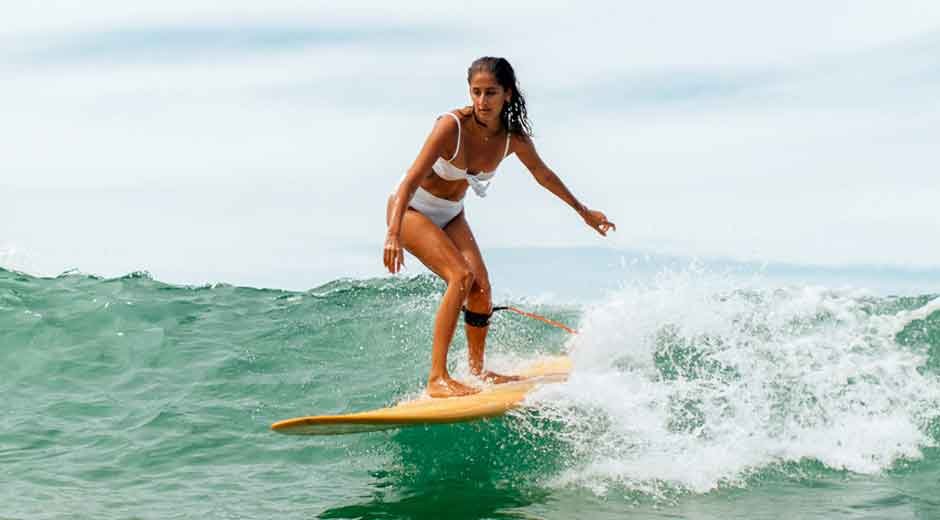Some people love the adventure of catching waves, and others love the ocean’s tranquility, which is why surfing is growing popular. However, for those just starting out, the adrenaline rush of that first wave can seem unachievable without the right advice. Surf lessons are a fun, safe, and encouraging way to practice developing skills and confidence in the water. In this post, we bring you the ultimate beginner surf lesson guide: what to expect, how to get prepared, and why starting with lessons makes doing so a fulfilling experience.
Understanding Surf Equipment
Before stepping into the waves, you must know what equipment you need. The most crucial piece of kit is a surfboard. You start with a longboard most often as a beginner, as this is the more stable type of skate. Another crucial equipment is wetsuits, which keep sailors warm and protected from the elements. You should select a snug-fitting wetsuit without limiting any mobility. Many beginners pair this gear with surf lessons in San Diego, CA, where local instructors guide them through safety and technique.
Selecting the Right Location
The quality of the location is a vital factor in the educational process. If you are a beginner, look for beaches with soft waves and sand bottoms. These places are safe and reduce the possibility of injury. Local surf schools or instructors can suggest good locations to get started.
Finding a Qualified Instructor
The wisdom of an instructor improves the experience. Every good instructor will provide you with some safety, technique, and etiquette pointers. You get individualized feedback that can be really helpful for beginners in honing their skills quickly. Classes usually involve land and water so that you can be prepared in all aspects.
Mastering Basic Techniques
The fundamental skills are the basics of surfing. The first skill you must learn for surfing is paddling, which allows surfers to catch waves. Another vital part is being on the board. Having the opportunity to practice on land before getting in the water can help build confidence. And the next skill you need to master is learning how to pop up: the transition from lying on the board to standing up on it so you can ride the waves.
Safety Precautions
It´s always better to be safe than sorry. Rookies should be aware of the scourge of rip currents that can carry tourists from land. Knowing how to spot and avoid these currents is essential. The leash keeps the board attached so it doesn’t become a weapon to others. Rookies should also know the rules of the road–respecting the lineup and other surfers, and how and in what order to take turns.
Building Physical Fitness
Surfing requires some level of fitness. A strong core, arms, and legs help you balance and paddle better. Regular exercises, like swimming or yoga, can increase your stamina and agility, which helps you enjoy being in the water even more.
Developing Patience and Persistence
Surfing is an art born of perseverance and practice. Initial progress may be slow, but consistent practice brings improvement. Mistakes are welcomed during the learning process, as this helps with personal growth and confidence. To maintain motivation, set realistic goals and celebrate small successes.
Understanding Wave Conditions
Reading wave conditions is one of the most valuable and essential skills any surfer can learn. Start by understanding how to read the weather, the tides, and the swells. These will affect how big and strong the waves are. Knowing them gives a clue as to when and where to surf.
Joining a Surf Community
Getting involved with a surf community can improve the experience, too. Other surfers lend support, share advice, and cheer each other on. So, you must meet other people in a local club, an online forum, or any other way.
Conclusion
It makes for a nice mixture of difficulty and fun, all with the bonus of being one with the ocean. Equipped with the right gear, some technical know-how, and a good attitude, beginners have a rewarding journey ahead of them. Sandy toes and salty kisses are the foundation of a lifetime love of surfing that starts with the fundamentals, safety, and connection. From catching that first wave to just riding the ocean line, this journey will be rewarding and fun.






